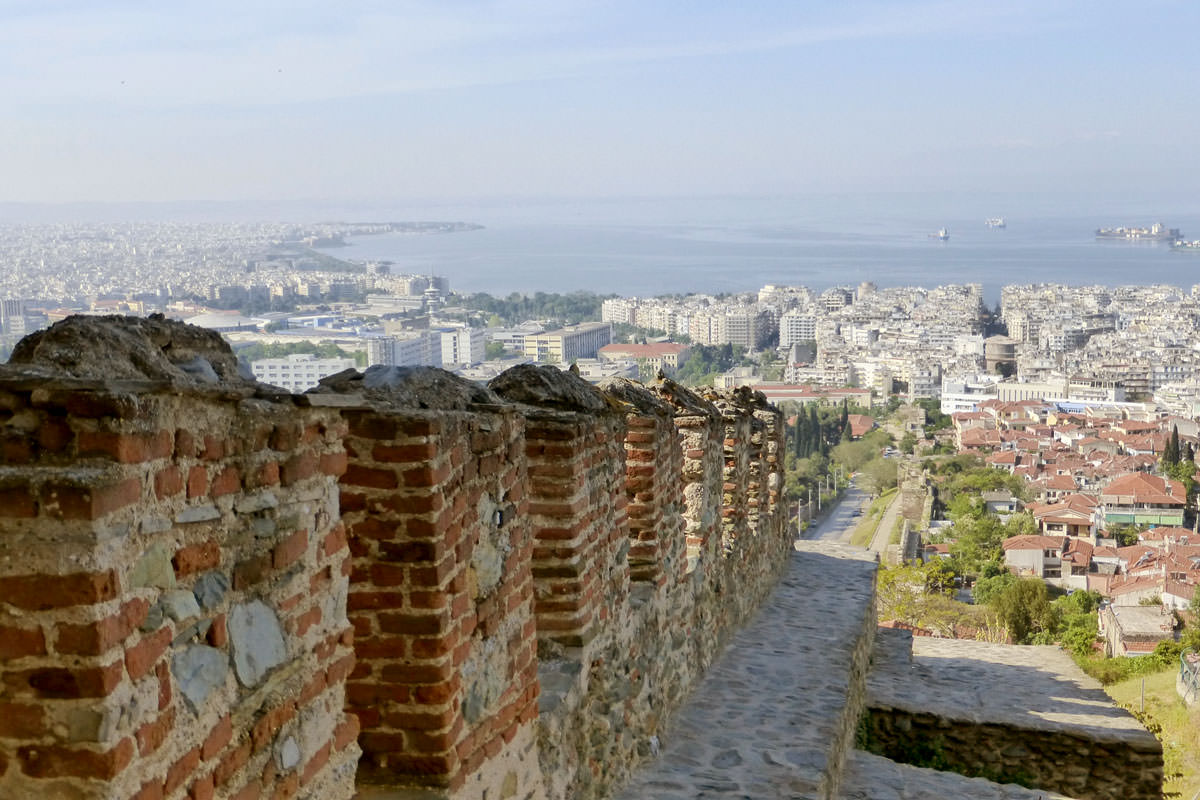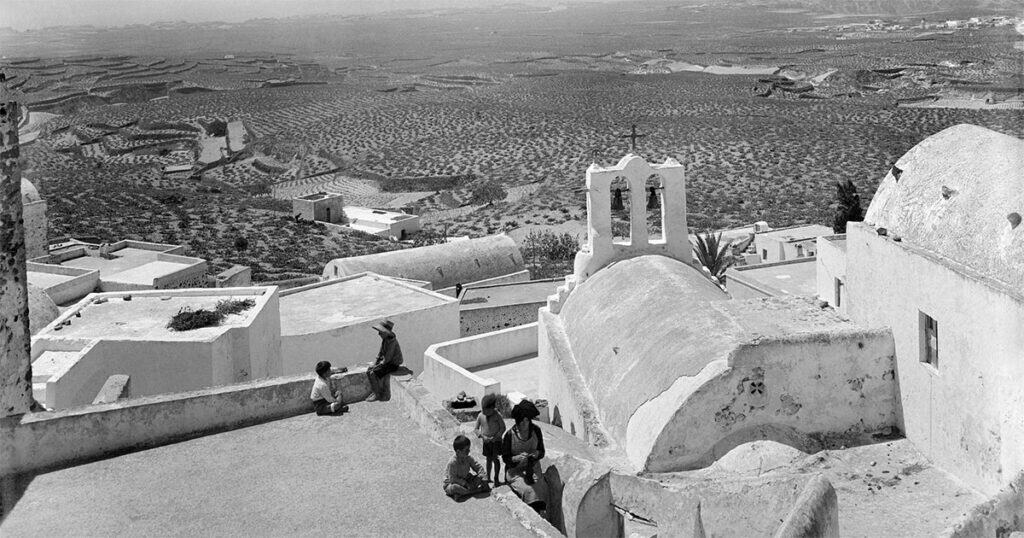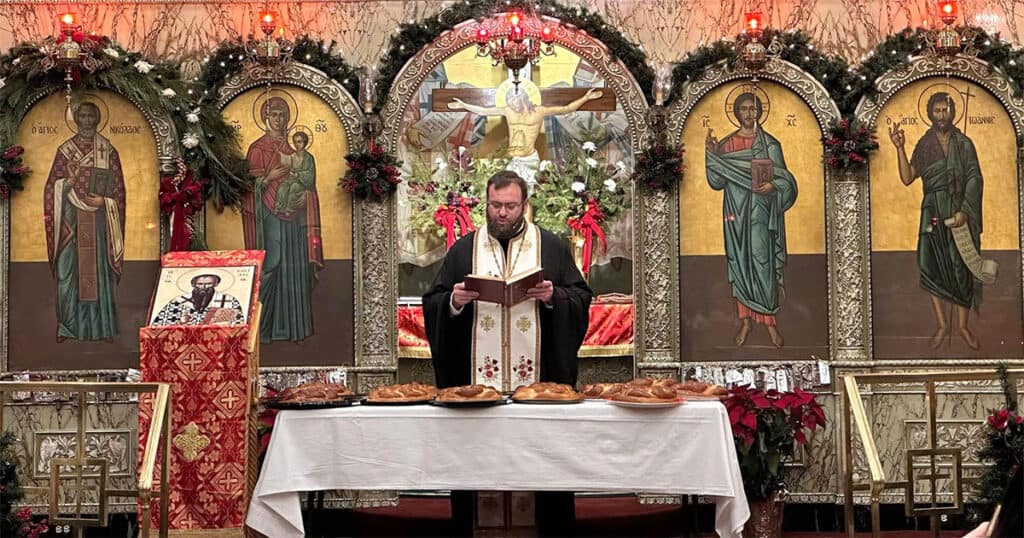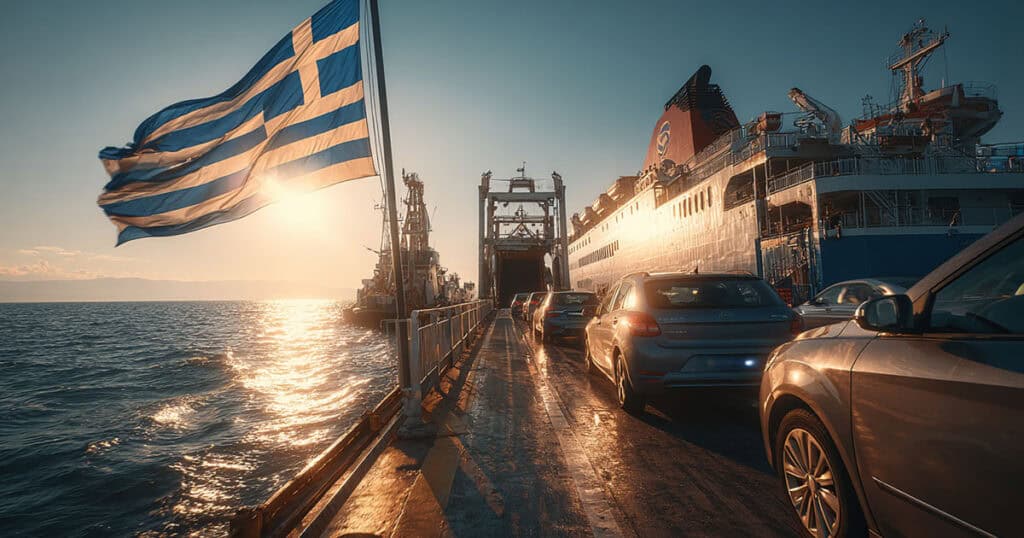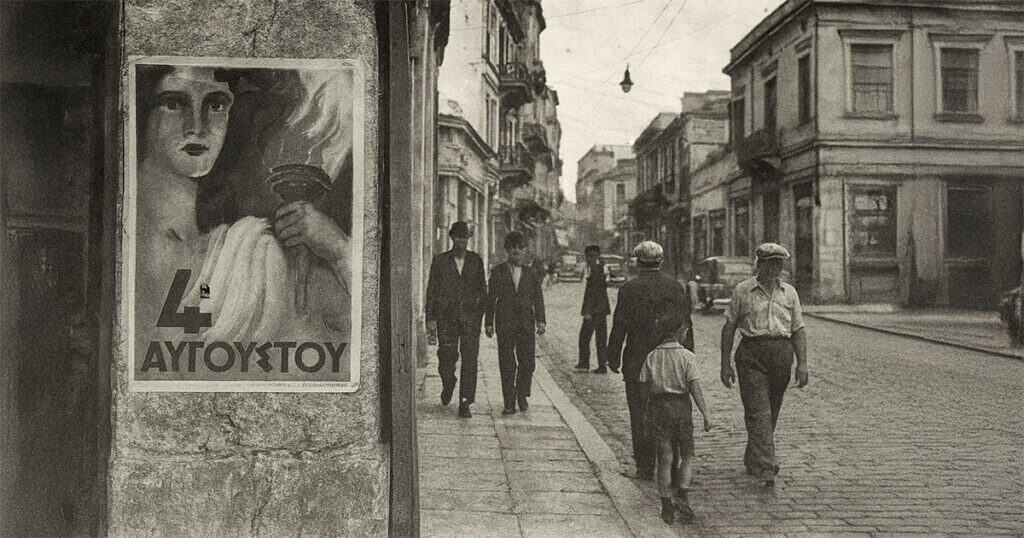It had been a long day, and, as often the case when traveling, and in Greece, a frustrating one. No doubt, for my then six-year-old son, sweating in his new PAOK soccer shirt in the late August heat, even more for him. Having endured a KTEL Bus trip from Kavala to Thessaloniki the day before, being dragged by his father through the Byzantine monuments of Thessaloniki to drinks, meze, and a dinner in the Ladadika district that evening, his first-grade feet were wearing thin.
But his father, Tata (Serbian for “Daddy” as I was then and am still called), just had to take him up to Ta Kastra for the morning. Thessaloniki’s walled Upper Town, called “The Castles” locally, was part of my ongoing belief in touching monuments from our history. By this I mean, literally putting one’s hand on stone, to feel and receive the energy and wisdom of the ages. It is one of my many foibles—more to be revealed herein and in subsequent columns.
The “laying of hands” practice started near our home in Athens, where Kapodistriou Street cleaves Beverly Hillsy Philothei from the more proletarian version we lived in, Nea (New) Philothei. As one went west, approaching Nea Ionia (a former refugee camp turned suburb), the remnants of a Roman aqueduct attempted to bridge the torrent of traffic that is Kapodistriou Avenue. Here, I took my then three-year-old son to touch the masonry, and the ritual remained; no doubt my son, a budding teenager, is happy we live in Chicago, if for no other reason than ancient masonry is scarce in these parts.
Back in Thessaloniki, masonry of various ages with plenty of history abounded, and we just had to go up to the Upper Town to “touch the monuments.” At some point, given that we started early after retiring late the night before, and it was still morning, he insisted on a break. For us, this could mean only one thing, particularly in Europe: a café. Such establishments are of course ubiquitous in Greece and often as not one of her greatest delights (the list of delights being rather long in Greece). In this case though, I had a rare disappointment; a four euro double espresso that tasted worse than a US gas station coffee.
Giddy from hunger and the insult of one of my greatest pleasures being soured, I started a fight with the Neohellenic (Greek Millennial) waiter. This extended to the rather beefy proprietor, before, like most Greek arguments, receding with the rapidity of its escalation. Leaving the café, my son still needed to eat, and would not submit to the long walk down to the city, each of us with a rather large backpack I hailed a cab, normally a negotiation in Greece but in 2010, Year Two of the Austerity Era, a passing cab was only too happy to comply.
He dropped us off near Egnatia Street, the city’s heart, named for a Roman road which connected Thessaloniki, Byzantium’s “Second City,” with “The City,” known today as, among other names, Istanbul. Both of us now full-on hungry, and hot in the midday Macedonian sun, we retreated into a stoa, one of the arcaded pedestrian streets which define Europe. Here in Thessaloniki the stoa typically had a feel part Viennese, part Ottoman. Elegance of the past confronted a present of peeling posters, graffiti, city grime, and vacant, shuttered shops. The Crisis hit Thessaloniki harder and earlier than Athens, it had always had to play second fiddle to the capital, though Thessaloniki is far more elegant than Athens.
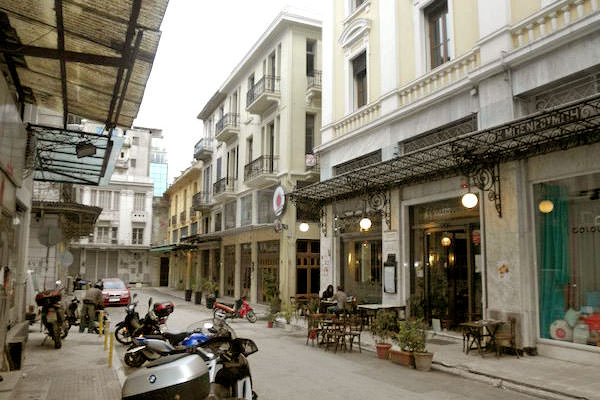
The stoa was cool in the summer heat, and several shops in, small wooden tables and rattan chairs heralded a taverna. No time to argue, my son begged for food, and we had several hours to kill before our all night bus to Serbia. We walked in, a gruff greeting from the waiter in a “wifebeater” t-shirt and apron, a few interior tables with disposable paper tablecloths, some faded pictures on the wall, a calendar, and a grimy kitchen in back. And of course, the glass food display case; there was no menu but what was in front of you.
The visually expressed bill of fare: macaroni with meat sauce, giant navy beans with tomato sauce, roasted potatoes, and some other simple home dish. We pointed for two navy bean portions with potatoes, and asked for a village salad (cucumber, onion, feta, tomato, pepper salad). A Fanta for my boy, and a half liter of hima wine for me. Greek comfort food was on its way!
Two portions arrived, well-oiled. A Greek salad, one of nature’s most sublime gifts, and a copper cylindrical can full of cheap, sulfite-free homemade wine a few degrees above freezing. On the slightly rickety table lay three plates, two with large gigantes beans the color of a gold-red sunset, bathed in an oily tomato base with plenty of onions, with oven baked potatoes. Fresh bread helped to guide these delicious contents onto our forks. Then, of course, the third plate hosted the Greek salad, a festival of colors, shades of red for tomatoes, onions, and peppers, with the white of feta and the light green of the cucumber, which tastes nowhere like in Greece. The wine, a golden blond, no doubt from a vineyard just a few kilometers from the city. It was an eternal Greek meal, many of the ingredients as timeless as Greece herself, but also strangely modern, a healthy meal, vegetarian-based, and green, with all ingredients sourced very locally. Though none of the patrons could be mistaken for crunchy, granola types, the board of fare might have inspired an upscale clientele in Los Angeles.
But this was Greece, and here, this was comfort food, the food of the poor, but the nutritional value was great and accounts, no doubt, for the Greeks’ general longevity and quality of life — in spite of everything. I thought of my late father, who would have loved the meal and the surroundings, and of times, well into the past, when he would pull me into such tavernas in Piraeus, his hometown, eat such a meal of the poor, and with eyes watering up remember meals past. I thought of meals in Athens, where we lived for two years, and where such tavernas were crowded out by hipper establishments, now scarce for patrons. Such a tavern will always survive, and somehow, after leaving our wobbly table, I felt confident that Greece would survive.
A version of this article first appeared in Weekly Hubris.
